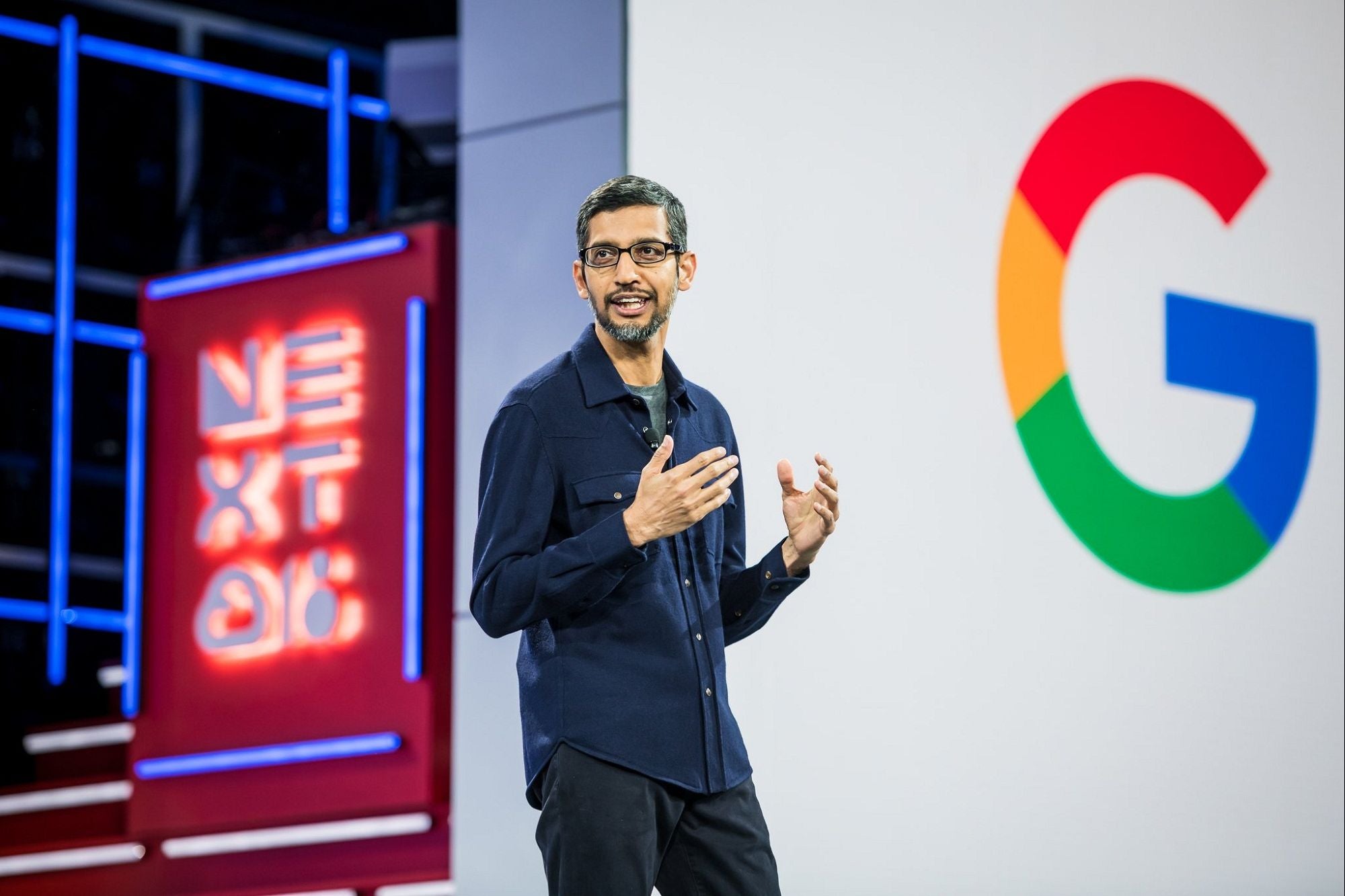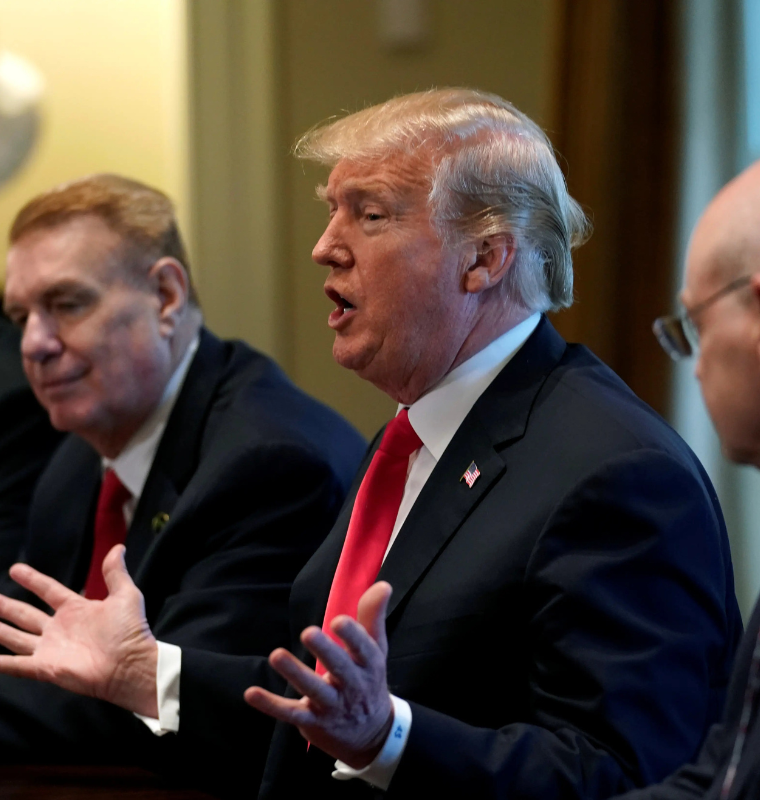Google Pushes for AI-First Workforce Amid Massive Spending and Rising Competitive Pressure
Google Pushes for AI-First Workforce Amid Massive Spending and Rising Competitive Pressure
By
Leah Rosenfeld
Last updated:
July 30, 2025
First Published:
August 6, 2025

Photo: Entrepreneur
Google Shifts Gears: AI Proficiency Becomes Core to Workplace Culture
Google executives are doubling down on internal AI adoption, making it clear that productivity gains through artificial intelligence are no longer optional—but essential. During an all-hands meeting last week, CEO Sundar Pichai and senior leaders emphasized that the company must “accomplish more with less” as it enters a phase of aggressive capital investment and intensified global competition.
“In this AI moment, we have to drive higher productivity,” said Pichai, referencing the company’s evolving operational expectations. “This is a transition where we get more done, not by adding headcount, but by becoming AI-savvy.”
Massive Investment, Tightening Resources
Alphabet, Google’s parent company, recently increased its 2025 capital expenditure forecast to $85 billion, up from a previous $75 billion projection. Much of this spending is earmarked for expanding AI infrastructure, including data centers and custom silicon chips designed to run generative models.
Yet, amid this investment surge, the company is making parallel efforts to contain headcount and reduce operational costs. As of June 2025, Alphabet employed just over 187,000 full-time staff, still below its 2023 peak of around 191,000. Google has been strategically trimming teams since early 2023, including offering buyouts to streamline operations.
“We need to be frugal with our resources and focus on efficiency,” Pichai said, while also expressing optimism about the company’s trajectory.
AI Integration Is Now Mandatory, Not Optional
At the same meeting, Brian Saluzzo, who oversees Google’s developer infrastructure, said the company is rapidly expanding its suite of AI-powered internal tools aimed at software engineers (SWEs) and product teams. He pointed to a growing urgency within Google to embed AI deeply across workflows.
“We feel the urgency to integrate AI faster into our coding pipelines,” said Saluzzo. “This is about accelerating the pace at which teams can deliver.”
Among the most notable internal initiatives:
- “AI Savvy Google”: A company-wide portal featuring AI training, toolkits, and specialized sessions tailored for individual product areas.
- “Building with Gemini”: A new internal course in collaboration with DeepMind that focuses on using Google's Gemini model family in practical engineering tasks.
- Cider: Google’s proprietary AI coding assistant, launched in May. According to Saluzzo, over 50% of users rely on Cider weekly, making it a core part of engineering workflows.
Industry-Wide Shift Toward AI-Driven Productivity
Google’s internal messaging mirrors similar moves across the tech industry:
- Amazon CEO Andy Jassy recently informed employees that generative AI would allow corporate teams to shrink in size while maintaining output.
- Microsoft leadership declared AI usage “non-optional.”
- Shopify CEO Tobi Lütke said teams must demonstrate how they’ve used AI tools before requesting additional headcount or resources.
The consistent thread across these statements: AI is not just a tool; it’s now a job expectation.
Strategic Acquisitions Accelerate Google’s AI Ambitions
Google also made headlines this month by acquiring startup Windsurf in a $2.4 billion deal. Windsurf CEO Varun Mohan and several senior engineers have joined Google, bolstering its AI coding capabilities. Pichai referred to the acquisition as a meaningful addition to the company’s internal AI arsenal.
“I think they will end up helping a lot in this area as well,” he said of the Windsurf team.
Final Thoughts
As competition in the AI space escalates—both from Big Tech rivals and nimble startups—Google is signaling a cultural transformation from within. Employees are being urged not just to adopt AI tools but to embed them into every layer of their workflow, from code writing to strategic planning.
The message is clear: the future of work at Google hinges on speed, self-sufficiency, and AI fluency. In an era defined by leaner teams and rising expectations, those who embrace this shift will thrive—while others may be left behind.
Popular articles
Subscribe to unlock premium content
Disney’s Timeless Magic and How the Entertainment Giant Continues to Shape Culture and Innovation

Imran Khan’s Economic Missteps Amid Political Chaos in Pakistan

The Philippines’ Digital Shift How Remittances and BPO Are Fueling Growth

Disney’s Timeless Magic and How the Entertainment Giant Continues to Shape Culture and Innovation

Imran Khan’s Economic Missteps Amid Political Chaos in Pakistan

Disney’s Timeless Magic and How the Entertainment Giant Continues to Shape Culture and Innovation









